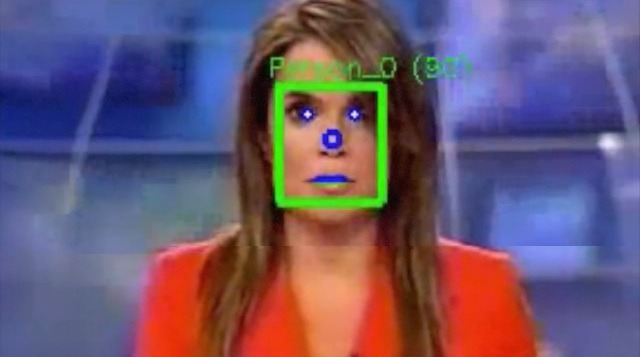
A team of Australian physicists has created the world

A new video shows off the creepy, emerging world of robot vision.

A team of MIT researchers has developed a way of making a high-temperature version of a kind of materials called photonic crystals, using metals such as tungsten or tantalum. The new materials — which can operate at temperatures up to 1200 degrees Celsius — could find a wide variety of applications powering portable electronic devices, spacecraft to probe deep space, and new infrared light emitters that could be used as chemical detectors and sensors.

(PhysOrg.com) -- Ever since scientists began studying the brain, they’ve wanted to get a better look at what was going on. Researchers have poked and prodded and looked at dead cells under electron microscopes, but never before have they been able to get high resolution microscopic views of actual living brain cells as they function inside of a living animal. Now, thanks to work by physicist Stefan Hell and his colleagues at the Max Planck Institute in Germany, that dream is realized. In a paper published in Science, Hell and his team describe the workings of their marvelous discovery.

(PhysOrg.com) -- Engineers have built the first carbon nanotube (CNT) transistor with a channel length below 10 nm, a size that is considered a requirement for computing technology in the next decade. Not only can the tiny transistor sufficiently control current, it does so significantly better than predicted by theory. It even outperforms the best competing silicon transistors at this scale, demonstrating a superior current density at a very low operating voltage.

Magnetic random-access memory based on new spin transfer technology achieves higher storage density by packing multiple bits of data into each memory cell.

Scientists working at the U.S. Department of Energy's (DOE) SLAC National Accelerator Laboratory have created the shortest, purest X-ray laser pulses ever achieved, fulfilling a 45-year-old prediction and opening the door to a new range of scientific discovery.

Researchers have succeeded in combining the power of quantum computing with the security of quantum cryptography and have shown that perfectly secure cloud computing can be achieved using the principles of quantum mechanics. They have performed an experimental demonstration of quantum computation in which the input, the data processing, and the output remain unknown to the quantum computer. The international team of scientists will publish the results of the experiment, carried out at the Vienna Center for Quantum Science and Technology (VCQ) at the University of Vienna and the Institute for Quantum Optics and Quantum Information (IQOQI), in the forthcoming issue of Science.

(PhysOrg.com) -- While physicists at the Large Hadron Collider smash together thousands of protons and other particles to see what matter is made of, they

Scientists from IBM and the German Center for Free-Electron Laser Science (CFEL) have built the world

A superlens would let you see a virus in a drop of blood and open the door to better and cheaper electronics. It might, says Durdu Guney, make ultra-high-resolution microscopes as commonplace as cameras in our cell phones.

NEC Corporation (NEC) has demonstrated 1.15 terabits/s (trillion bits per second) ultra-long-haul optical transmission over 10,000 kilometers using optical

D-Wave Systems has carried out a calculation involving 84 qubits on its D-Wave One quantum computing system, Technology Review Physics arXiv blog

IBM Research scientists have successfully demonstrated the ability to store one bit of information in as few as 12 magnetic atoms. Today’s disk drives use
Forwards Collection: http://www.funtheory.net/forwardscollection.htm Like us on Facebook: http://www.facebook.com/FunTheory Follow us on Twitter: http://twitter.com/#!/FunTheorydotNet 3D printing is a form of additive manufacturing technology where a three dimensional object is created by laying down successive layers of material. 3D printers are generally faster, more affordable and easier to use than other additive manufacturing technologies. 3D printers offer product developers the ability to print parts and assemblies made of several materials with different mechanical and physical properties in a single build process. Advanced 3D printing technologies yield models that can serve as product prototypes. There has been large growth in the sale of 3D printers. Additionally, the cost of 3D printers has declined. The technology also finds use in the jewelry, footwear, industrial design, architecture, engineering and construction (AEC), automotive, aerospace, dental and medical industries, education, GIS, civil engineers, etc.